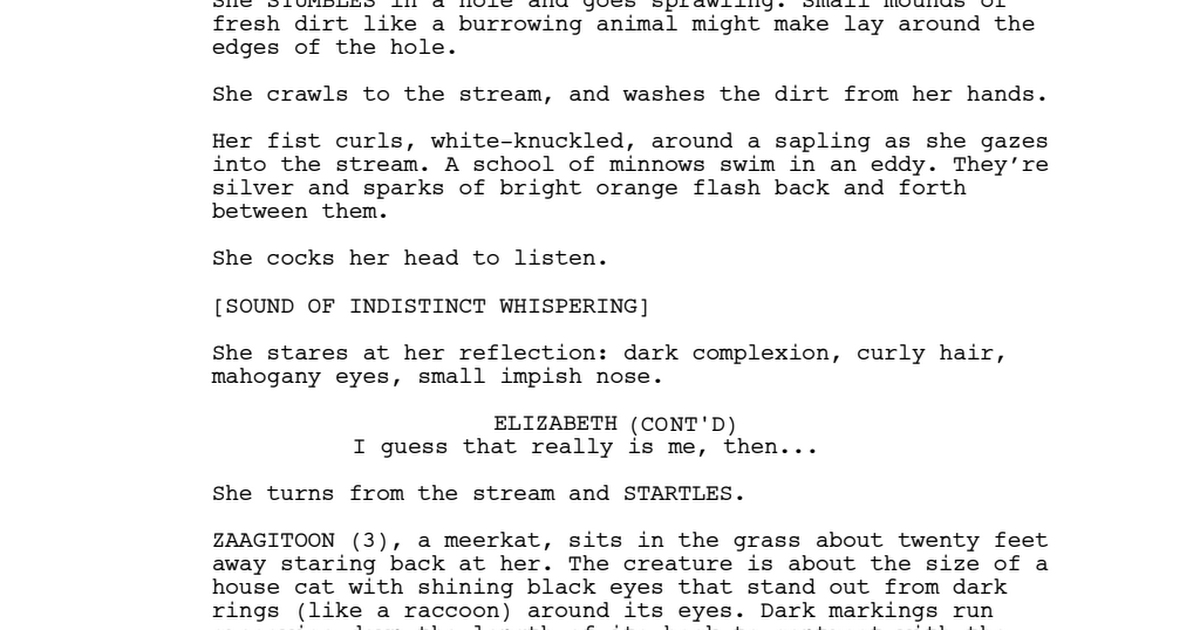Having been absent for quite some time, it's great to be back again. A few old monikers I recognize and many new talents!
I was hoping for some feedback on a screen adaptation of a novel I published a few years ago. Back story: A young woman in an abusive relationship suffers a severe injury. While in a coma, she creates another world in her mind in an attempt to survive and piece herself back together. She regresses to a younger version of herself in this world.
The "real" world, which is the framing story, is dark and harsh. The fantasy world is more childlike and whimsical. Think Alice in Wonderland. The problem I'm having is the dissonance between the two worlds. I fear the change in tone can be off-putting to the viewer. In the novel, I'm able to smooth over the transition. The target audience is adults who appreciate a fairy-tale. I guess I'm wondering if the tone I'm taking in the excerpted scenes (which is the main character's first introduction to her fantasy world) is too childlike and whimsical to appeal to an adult audience. Of course any other critique is welcomed and encouraged as well.
The excerpt is 10 pages long. Thanks all!
-Charles

 drive.google.com
drive.google.com
(let me know if there are any problems with the link)
I was hoping for some feedback on a screen adaptation of a novel I published a few years ago. Back story: A young woman in an abusive relationship suffers a severe injury. While in a coma, she creates another world in her mind in an attempt to survive and piece herself back together. She regresses to a younger version of herself in this world.
The "real" world, which is the framing story, is dark and harsh. The fantasy world is more childlike and whimsical. Think Alice in Wonderland. The problem I'm having is the dissonance between the two worlds. I fear the change in tone can be off-putting to the viewer. In the novel, I'm able to smooth over the transition. The target audience is adults who appreciate a fairy-tale. I guess I'm wondering if the tone I'm taking in the excerpted scenes (which is the main character's first introduction to her fantasy world) is too childlike and whimsical to appeal to an adult audience. Of course any other critique is welcomed and encouraged as well.
The excerpt is 10 pages long. Thanks all!
-Charles
Excerpt.pdf
 drive.google.com
drive.google.com
(let me know if there are any problems with the link)




